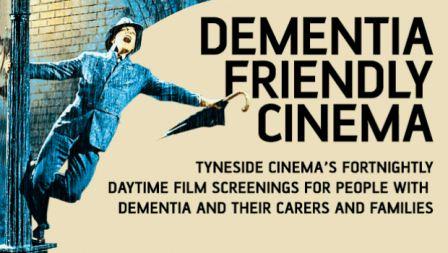Dementia Friendly Cinema



Through its engagement with older people with dementia and their carers, the Elders Council identified a gap in the opportunity for people with dementia to participate in everyday social activities. The Elders Council heard about a cinema in another part of the UK that had developed a programme of film screenings for people with dementia, and approached a local cinema to see whether they would be prepared to develop a similar offer. The Tyneside Cinema welcomed the approach and appointed a project manager to work with them to develop a programme. A partnership group was established to oversee the project, drawing in expertise from people with dementia and their carers. A local philanthropic trust awarded the project a small grant for the development phase of the project, as the intention is that the screenings should become self-financing and part of the cinema’s mainstream offer. A comprehensive survey was produced and widely circulated to gather views from people with dementia and their carers to establish the level of interest in a special programme, and what type of support people might need to participate. A comprehensive audit of the cinema was done to determine how to make the cinema more accessible to people with dementia. All the front of house staff received dementia awareness training.The screenings started in July 2015 with a programme of musicals. 40 people attended the first screening. The programme is being evaluated by researchers from Newcastle University.
Website: https://www.tynesidecinema.co.uk/whats-on/dementia-friendly-cinema
Main target group: Older people in general
Other target group(s): Older people with dementia and their carers
Desired outcome for older people:
Build and maintain relationships
Other Issues: This project addresses the inclusion of people with dementia in mainstream activity.
Name: Douglas, Barbara
Email address: barbara.douglas@qualityoflife.org.uk
Preferred language(s): English